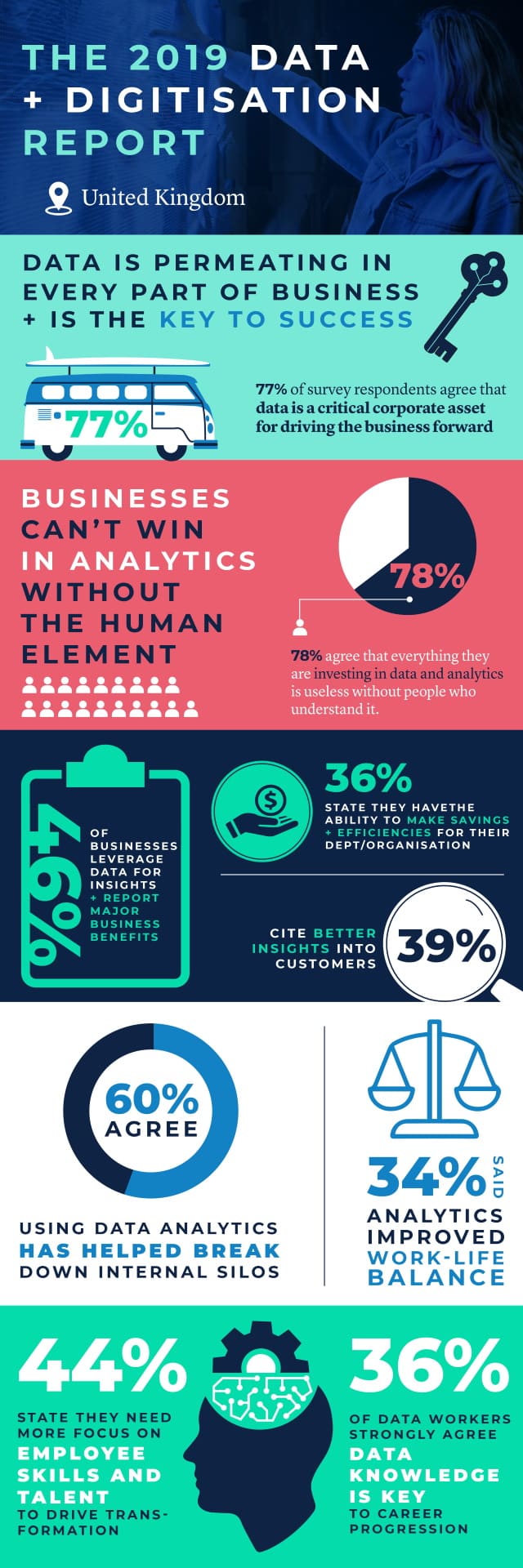Talent shortage holds back data analytics projects

Although organizations are becoming more data driven, projects are being held back by a shortage of skilled staff according to a new study.
The research by data science specialist Alteryx surveyed IT decision makers across the UK and five other countries in Europe, the Middle East and Africa (EMEA) and Asia-Pacific (APAC) and finds 77 percent agree that data is a critical corporate asset for driving the business forward.
UK businesses cite data analytics as the catalyst behind their ability to understand their end customer better, with nearly two thirds (71 percent) using insights to offer more personalised offers. Through their use of analytics, almost half (46 percent) rank increased productivity as one of the three major business benefits of data insights.
However, the human factor is critical, a talent shortage is seen as the most notable challenge that UK organizations face in becoming a more data-driven organisation (34 percent). Organizations are working to acquire talent to support a variety of initiatives for data and analytics success, including code-free and code-friendly analytics to deep learning/machine learning, and explainable AI, all while developing a robust culture of data and analytics.
When asked about the building blocks for their digital transformation initiatives, 44 percent say they need more focus on employee skills and talent to drive transformation, while 36 percent of data workers strongly agree that data knowledge is key to career progression within the company.
In an increasingly data-driven world, 29 percent report they are constantly delivering results and on the path to a high performing culture of data and analytics. However, the research also highlights that fewer than one in three (32 percent) of data workers have access to data across all departments.
Asked to look ahead over the next five years, 35 percent confirm they are prioritising data and analytics technologies, just behind cloud (38 percent); with artificial intelligence and machine learning (22 percent); and mobile/5G (20 percent) also priorities.
"The business case for analytics has truly been acknowledged," says Alan Jacobson, chief data and analytics officer at Alteryx. "While many are still balancing data inefficiencies with the challenge of a shortage of skilled data workers, this latest research from Alteryx underscores that investing in data and analytics technology alone won’t deliver real business-altering results. In order to digitally transform an organisation, a smart approach to delivering the right culture that can embrace the change is equally if not more important in achieving success."
The full research is available from the Alteryx site and there's an infographic breakdown of the UK results below.

Photo Credit: NicoElNino/Shutterstock
